Orthodox Easter
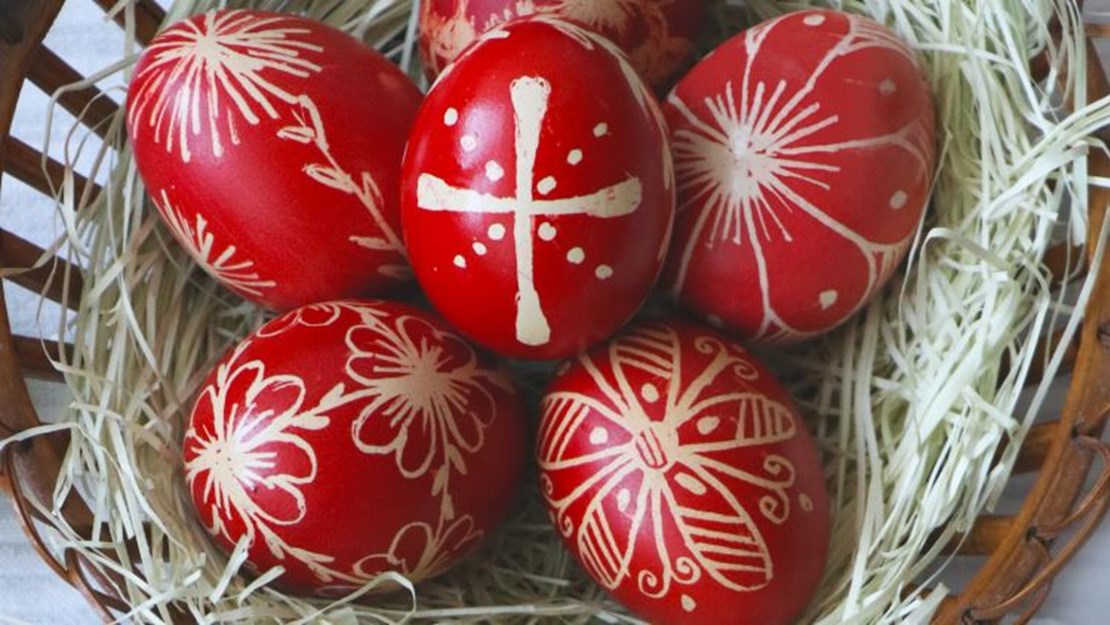
This year Orthodox Easter falls on Sunday 5 May.
The customary main attraction of the day is whole roasted lamb or goat to represent the Lamb of God. Appetisers, such as olives and tzatziki, are served for guests to enjoy while watching the lamb cook on the spit.
Delicious foods such as Tsoureki and traditional sweet Greek biscuits are often served on the day and at a midnight church service traditional Lambada candles are lit.
The Market is a one-stop-shop for all your Orthodox Easter needs!
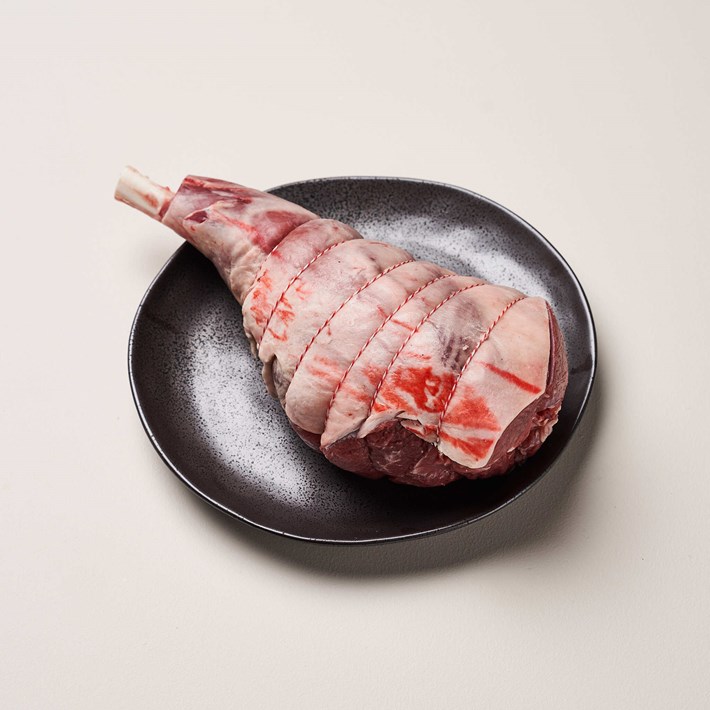
Leg of lamb from Hagen's Organics
Lamb
Visit our butchers for succulent Easter lamb. You'll find a vast array of cuts from at our butchers; Hagen's Organic Butcher, Kirkpatrick's Meats, Ralph's Meat Company and Flinders & Co.
All of the Market's Butchers also offer pre-order of whole lambs. Make sure you give them a visit or call to ask their cut off dates. Or, if you don't have a crowd to feed they all have a succulent selection of lamb cuts including legs and shoulders.
Season with lots of fresh rosemary and thyme and serve alongside sides of orzo, tzatziki and a fresh Greek salad - yum!
Sides
Georgie’s Harvest has a variety of different potatos available. Try seasoning your roast potatoes well with oil and salt. Roast until crispy and finish with lashings of parmesan, a touch of lemon rind and fresh chopped parsley for an elevated take on the classic.
Our Fruit & Veg traders have the best selection of seasonal produce, which make the perfect accompaniment to any lamb dish.
Deli
To try some traditional Orthodox Easter dishes or prepare a crown-pleasing grazing platter, head to our traders in the Deli Aisle.
There you'll find olives, cheeses, preserved vegetables, bite-size pastries, dips and bread for appetisers along with take-home meals such as moussaka from the Small Town Pie Shop.
Our delis also stock baklava and other traditional Greek sweets. Try Emerald Deli, or Flour Patisserie for a modern twist with ice-cream. Or maybe you could try making your own with our baklava recipe or this recipe for a home baked Tsoureki.
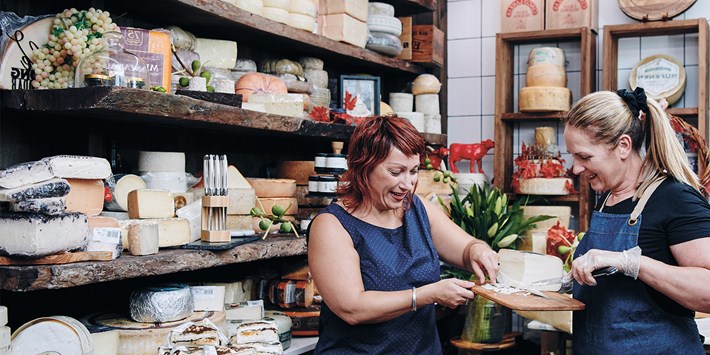
The cheese room at Emerald Deli
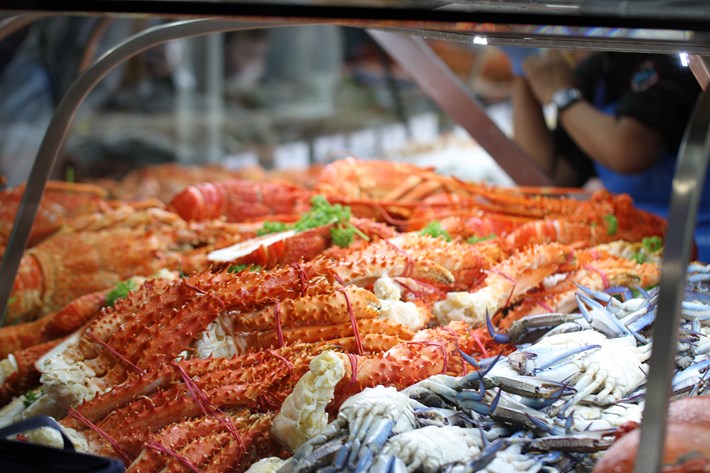
Beautiful fresh seafood at Aptus
Seafood
A traditional 40 day lent, during which meat and dairy products are substituted with plentiful amounts of fish and seafood is observed prior to Easter Sunday. Visit South Melbourne Seafoods, Gem Pier and Aptus Seafood for fresh and locally sourced seafood.
All three fishmongers have a beautifully fresh selection of ready to eat seafood including oysters, cooked prawns, whole lobsters and sashimi grade fish.
Try making a Greek inspired ceviche by curing a firm white fish such as snapper with lots of lemon juice and a pinch of sea salt and garnish with capers, red onion and parsley.
Or try baking a whole fish for the table topped with chopped tomatoes, olives, onion, garlic and lemon which will self-sauce in the oven - delicious.
Coloured Eggs
Buy free range eggs by the dozen in West Aisle from Babe's Farm Fresh Produce.
Dye sachets in red, green and blue can be bought from Rita's Coffee and Nuts and Vangeli's Deli to create colourful eggs at home and Lambada candles. Better Homes and Gardens has detailed instructions on how to dye them with food coloring.
The lambada is the traditional Easter candle that people hold on the evening of Holy Saturday. It is believed that the "holy" light arrives from Jerusalem in every church a little before midnight, thus allowing candles to be lit. You can find these candles at the above traders.
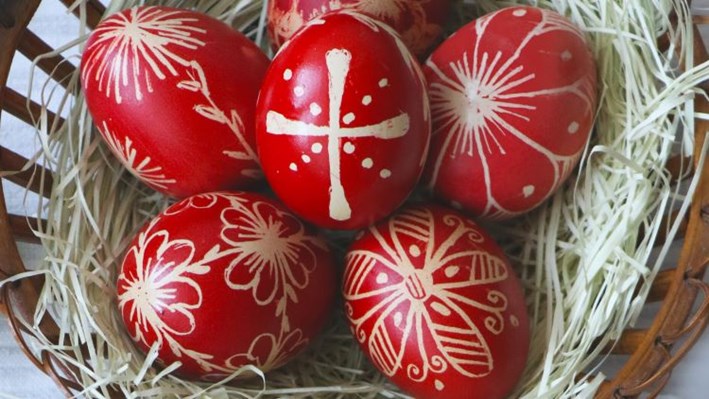
Traditional coloured eggs
Sweets
Koulourakia are a delicious traditional Greek dessert, typically made around Easter to be eaten after Holy Saturday. They are a butter-based pastry, traditionally hand-shaped, with egg glaze on top. They have a sweet delicate flavor with a hint of vanilla. Head to Gewurzhaus for their delicious Vanilla Bean Sugar, perfect for baking traditional Koulourakia.
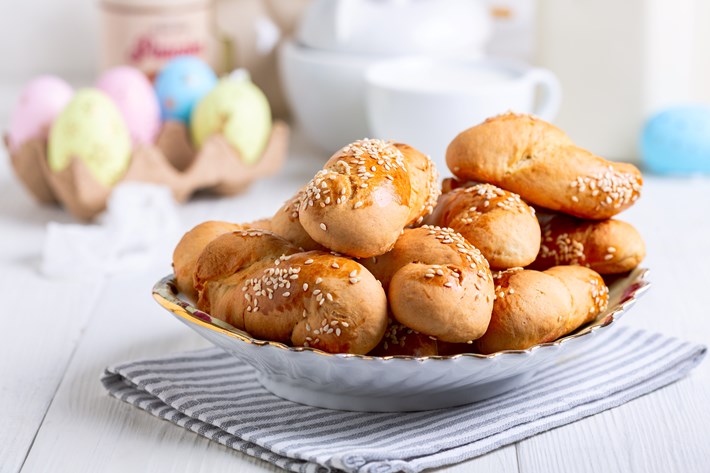
Koulourakia are a traditional Greek dessert, typically made around Orthodox Easter after Holy Saturday.
Did you know...
The Origin of Orthodox Easter (Pascha)
In 325 AD, the Council of Nicaea decided that Easter would be observed on the first Sunday after the first full moon on or after the March equinox. While the Council of Nicaea set the Easter date for most churches worldwide, not all Christian churches observe Easter according to the Gregorian calendar. Many Orthodox churches still witness Easter in congruence with the Julian calendar.
Why is the Orthodox Easter called Pascha?
The term "Pascha" for Orthodox Easter is derived from the Greek word "Pascha," which itself comes from the Hebrew word "Pesach." "Pesach" is the Jewish festival of Passover, which commemorates the Israelites' liberation from slavery in Egypt. The Last Supper of Jesus, which is associated with the Christian Eucharist, is believed to have been a Passover meal.
In Christian tradition, the resurrection of Jesus is often linked symbolically to the Passover, signifying a new liberation—this time from sin and death. The term "Pascha" has been used in Eastern Orthodox Christianity to emphasize this connection and to highlight the theological significance of Christ's resurrection during the Easter celebration.

